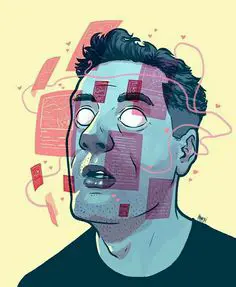
Overcoming Gaming Addiction: The Role of Therapy in Recovery
- Admin
Gaming addiction can be a challenging issue to overcome, affecting individuals' physical health, mental well-being, and relationships. Therapy plays a crucial role in helping individuals address underlying issues, develop coping strategies, and build a healthier relationship with gaming. In this article, we'll explore the importance of therapy in treating gaming addiction, the different therapeutic approaches used, and how therapy can support individuals on their journey to recovery.
1. Understanding Gaming Addiction:
Before delving into therapy, it's essential to understand gaming addiction and its impact. Gaming addiction, also known as gaming disorder, is characterized by excessive and compulsive gaming behavior that leads to significant impairment or distress. Understanding the psychological, social, and behavioral aspects of gaming addiction is essential for effective therapy interventions.
2. The Role of Therapy:
Therapy provides individuals with a safe and supportive environment to explore their thoughts, feelings, and behaviors related to gaming addiction. Therapists use a variety of approaches, including cognitive-behavioral therapy (CBT), dialectical behavior therapy (DBT), acceptance and commitment therapy (ACT), and mindfulness-based therapies, to address underlying issues, develop coping skills, and promote recovery.
3. Cognitive-Behavioral Therapy (CBT):
CBT is one of the most widely used approaches in treating gaming addiction. It helps individuals identify and challenge negative thoughts and beliefs about gaming, develop healthier coping mechanisms, and learn skills to manage cravings and triggers effectively. Through CBT, individuals can gain insight into their gaming behavior and develop strategies to change it.
4. Dialectical Behavior Therapy (DBT):
DBT focuses on teaching individuals skills for managing emotions, building distress tolerance, and improving interpersonal relationships. DBT is particularly helpful for individuals struggling with impulsivity, emotional dysregulation, and difficulty in interpersonal communication, which are common features of gaming addiction.
5. Acceptance and Commitment Therapy (ACT):
ACT emphasizes acceptance of difficult thoughts and feelings while committing to behaviors that align with one's values and goals. ACT helps individuals develop psychological flexibility, mindfulness skills, and strategies for living a meaningful life beyond gaming addiction.
6. Mindfulness-Based Therapies:
Mindfulness-based therapies, such as mindfulness-based stress reduction (MBSR) and mindfulness-based cognitive therapy (MBCT), help individuals cultivate present-moment awareness, reduce automatic reactions, and develop a nonjudgmental attitude towards their thoughts and feelings related to gaming addiction.
7. Seeking Help:
If you or someone you know is struggling with gaming addiction, seeking help from a qualified therapist or counselor specializing in addiction treatment is essential. Therapy provides personalized support, guidance, and interventions tailored to address the unique needs and goals of each individual.
Conclusion:
Therapy is a vital component of recovery for individuals struggling with gaming addiction. Through approaches such as cognitive-behavioral therapy, dialectical behavior therapy, acceptance and commitment therapy, and mindfulness-based therapies, individuals can gain insight into their gaming behavior, develop coping strategies, and build a healthier relationship with gaming and other areas of life. If you're struggling with gaming addiction, consider reaching out to a qualified therapist or counselor for support and guidance on your journey to recovery.
